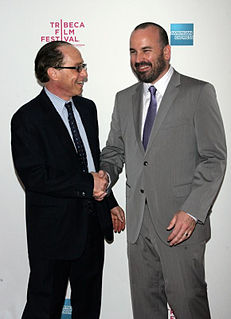A Quote by Wade Guyton
We are all frustrated with computers, all the time... But we also always develop a relationship with computers these days - something my parents never had... there%u2018s always a kind of negotiation, sometimes you are in tune with it and other times you are fighting with it.
Related Quotes
Everything is being run by computers. Everything is reliant on these computers working. We have become very reliant on Internet, on basic things like electricity, obviously, on computers working. And this really is something which creates completely new problems for us. We must have some way of continuing to work even if computers fail.
I've always taken apart calculators and anything I can get my hands on when I was younger. When I was around 12 - like, 6th grade - my parents always had around Mac computers because my mom is a teacher. So I'd always be playing around with all the crazy applications and making banners and printing things out and always into graphic design.
At the age of 5, when I was in kindergarten, I often used to pass by the computer labs and see students doing work on computers. I realized that calculation, which would take us a long time to do, can be done in less than a second with the help of computers. So that is how my interest in computers began.
Man is not a machine, ... although man most certainly processes information, he does not necessarily process it in the way computers do. Computers and men are not species of the same genus. .... No other organism, and certainly no computer, can be made to confront genuine human problems in human terms. ... However much intelligence computers may attain, now or in the future, theirs must always be an intelligence alien to genuine human problems and concerns.
With genetic engineering, we will be able to increase the complexity of our DNA, and improve the human race. But it will be a slow process, because one will have to wait about 18 years to see the effect of changes to the genetic code. By contrast, computers double their speed and memories every 18 months. There is a real danger that computers will develop intelligence and take over. We urgently need to develop direct connections to the brain so that computers can add to human intelligence rather than be in opposition.







































